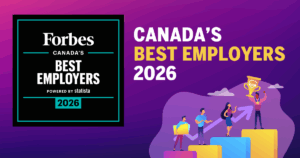Pre-meal huddles with staff are an important part of leading a successful foodservice operation. It’s a great way to introduce the day’s menu to the team, communicate important news, and outline your expectations for the shift.
Effective employee meetings inform and energize your team to do a great job for your customers, and so they should be a standard operating procedure for every foodservice operation.
10 Tips to Help Make Your Next Employee Meeting a Success
1. Prepare your objectives. Know what you want to accomplish going into each meeting. You might want to write up an agenda to ensure you cover everything and to keep the meeting on track.
2. Keep it snappy. You and your employees have plenty to do to prepare for meal preparation and delivery, so keep the meeting brief and focused. You should be able to accomplish everything you need to in 15 minutes or less. Also critical: Start at the same time every day, on the dot.
3. Include everybody. Pre-meals huddles are an excellent way to build camaraderie. One meeting for both kitchen and front-line personnel promotes team spirit (and is a more efficient use of your time). Don’t exclude part-timers, seasonal workers, or “low-level” employees from meetings, or you’ll foster a sense of “otherness.”
4. Get your game on. Getting people to pay attention can be difficult, even in short meetings. A quick game or contest will engage attention and invite participation, which promotes better learning. Hold a sandwich-preparation race. Conduct a blind taste test. Role-play situations that have proven a challenge for staffers.
5. Recognize, educate, motivate. Single out employees for specific praise. “Janet, you did a great job promoting the vegan burger yesterday—it was our top-selling entrée for the day.” Turn the recognition into education and motivation by asking praised employees to share their stories.
6. Encourage feedback. Ask for ideas and suggestions on improving your operation. You’re likely to get some good ideas, and you’ll make your people feel that their opinions matter.
7. Keep your eyes open. Pre-meals provide an opportunity to review your employees’ physical presentation before customers see them. Is grooming acceptable? Are uniforms clean and crisp? Are hairnets in place? Wait until the meeting is over to speak privately with any individual whose appearance doesn’t measure up.
8. Be positive. Public humiliation is not a good motivator, so pre-meals are not a forum for criticizing or reprimanding employees. Open and/or close meetings with positive affirmations—people tend to remember the first and last things they hear.
9. Be energetic. Make sure you put some passion and emotion into your presentation. Think of yourself as a coach, revving up your players for the big game.
10. Tell them what you’ve told them. Always recap the key points of each meeting and ask open-ended questions to test whether employees understood them. This approach also helps to reinforce learning.










